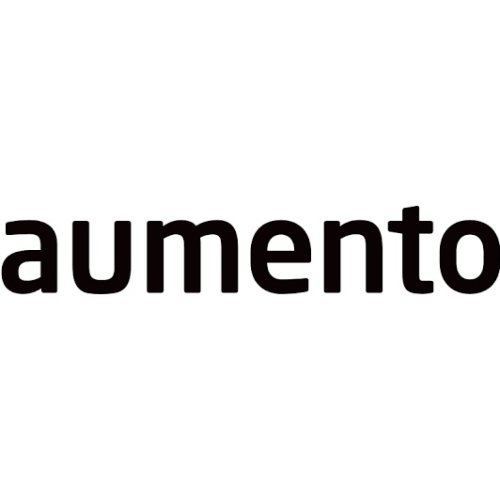Best Business Lawyers in Denmark
Share your needs with us, get contacted by law firms.
Free. Takes 2 min.
Or refine your search by selecting a city:
List of the best lawyers in Denmark
About Business Law in Denmark
Denmark is known for its stable and transparent business environment, making it an attractive destination for entrepreneurs and investors. The country provides a robust legal framework supporting businesses, with a focus on sustainability, innovation, and ease of doing business. Business law in Denmark encompasses a broad spectrum of areas including corporate law, employment law, tax law, intellectual property law, and commercial agreements. The Danish government imposes regulations to ensure fair competition and to protect both businesses and consumers, fostering an ethical marketplace.
Why You May Need a Lawyer
Engaging a lawyer might be necessary in various situations related to business operations in Denmark. Whether you are starting a new business, entering into contracts, dealing with employee relations, or facing litigation, legal expertise can prove invaluable. Common scenarios include:
- Establishing a new business entity or restructuring an existing one.
- Negotiating and drafting commercial contracts and agreements.
- Ensuring compliance with Danish employment laws and regulations.
- Handling intellectual property rights and trademark registrations.
- Resolving disputes through mediation, arbitration, or court proceedings.
- Tax planning and ensuring compliance with Danish tax regulations.
Local Laws Overview
The Danish legal system is based on civil law and is influenced by EU legislation, which plays a significant role in shaping business law in Denmark. Key aspects include:
- Corporate Law: Governed by the Danish Companies Act, which sets the rules for different forms of business entities, including their formation, management, and dissolution.
- Employment Law: Strong employee protections exist, covering aspects such as contracts, working hours, holidays, and termination of employment.
- Contract Law: Danish law recognizes the freedom to contract, but agreements must adhere to principles of fairness and good faith.
- Intellectual Property: Protection is ensured through Danish law and international agreements covering copyrights, patents, and trademarks.
- Taxation: Businesses must comply with regulations on corporate income tax, VAT, and withholding taxes, overseen by the Danish Tax Agency.
Frequently Asked Questions
What are the main types of business entities in Denmark?
The main forms are sole proprietorships, partnerships, limited partnerships, private limited companies (ApS), and public limited companies (A/S).
How long does it take to register a company?
With the online system, it can take as little as a few hours to register a company if all documentation is in order.
Are there any residency requirements for directors of Danish companies?
Yes, at least one member of the management, such as a director, must reside within the EU, EEA, or a country with reciprocal agreements with Denmark.
What is the minimum share capital for a private limited company (ApS)?
The minimum share capital is DKK 40,000.
Do I need a Danish bank account to start a business?
Yes, you will need a Danish bank account to deposit the initial capital and handle day-to-day transactions.
How is business income taxed in Denmark?
Corporate income is taxed at a flat rate of 22%, and additional taxes may apply depending on the business structure.
What are the labor law requirements for hiring employees in Denmark?
You must provide employment contracts, pay fair wages, and comply with statutory benefits and obligations concerning working conditions and termination.
Can foreign companies open branches or subsidiaries in Denmark?
Yes, foreign companies can establish branches or subsidiaries, but they must register with the Danish Business Authority.
What are common methods of resolving business disputes?
Disputes can be resolved through negotiation, mediation, arbitration, or litigation in Danish courts.
Is it necessary to consult with a lawyer when drafting contracts?
Consulting with a lawyer is advisable to ensure that contracts are legally sound and protect your interests effectively.
Additional Resources
For more information and assistance, consider the following resources:
- Danish Business Authority - Offers guidance on business registration and regulation.
- The Danish Tax Agency - Provides information on tax compliance and regulations.
- The Danish Patent and Trademark Office - Assists with intellectual property rights.
- Chambers of Commerce - Offer networking opportunities and business support.
Next Steps
If you need legal assistance in business, consider the following steps:
- Research and identify qualified business lawyers or law firms in Denmark.
- Schedule consultations to discuss your specific legal needs and evaluate the services offered.
- Seek recommendations and reviews from other business owners to ensure credibility.
- Negotiate terms of representation and confirm the legal scope and costs involved.
- Keep informed about ongoing legal requirements and seek regular legal advice as your business grows.
Lawzana helps you find the best lawyers and law firms in Denmark through a curated and pre-screened list of qualified legal professionals. Our platform offers rankings and detailed profiles of attorneys and law firms, allowing you to compare based on practice areas, including Business, experience, and client feedback.
Each profile includes a description of the firm's areas of practice, client reviews, team members and partners, year of establishment, spoken languages, office locations, contact information, social media presence, and any published articles or resources. Most firms on our platform speak English and are experienced in both local and international legal matters.
Get a quote from top-rated law firms in Denmark — quickly, securely, and without unnecessary hassle.
Disclaimer:
The information provided on this page is for general informational purposes only and does not constitute legal advice. While we strive to ensure the accuracy and relevance of the content, legal information may change over time, and interpretations of the law can vary. You should always consult with a qualified legal professional for advice specific to your situation.
We disclaim all liability for actions taken or not taken based on the content of this page. If you believe any information is incorrect or outdated, please contact us, and we will review and update it where appropriate.
Browse business law firms by service in Denmark
Denmark Attorneys in related practice areas.
Browse business law firms by city in Denmark
Refine your search by selecting a city.

















